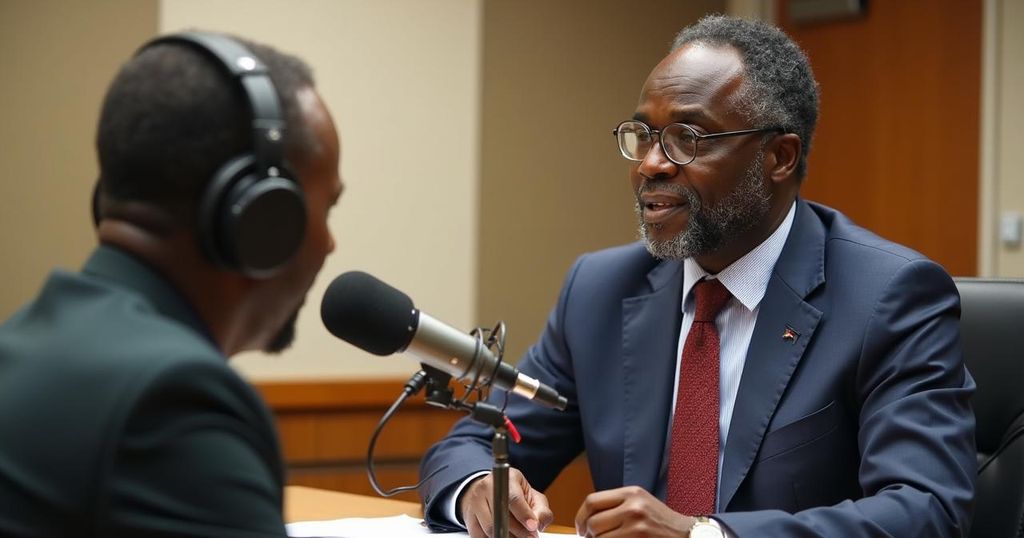Professor Jok Madut Jok argues that President Salva Kiir’s government has repeatedly misled the public about elections in South Sudan to divert attention from significant challenges, such as hunger and instability. He expresses doubts about the possibility of genuine democratic transitions, highlighting the ineffective nature of the Tumaini Initiative in addressing fundamental governance issues. With a lack of organized civil society and international pressure, Jok questions the government’s commitment to necessary reforms.
In a revealing interview with Radio Tamazuj, Professor Jok Madut Jok, an esteemed anthropologist and former South Sudanese government official, articulated serious concerns about President Salva Kiir’s administration, particularly regarding the repeated postpositions of elections and the extension of the transitional government. Professor Jok emphasized that the government has persistently misled the public regarding the likelihood of elections. He clarified that the requisite conditions for credible elections, as stipulated in the 2018 peace agreement—such as a population census, a functioning constitution, secured peace, and financial resources—have not been met. The postponement of the elections has intensified public outrage, as it underscores a pattern of governmental deceit aiming to distract citizens from dire issues like hunger and systemic instability. Professor Jok lamented the ramifications of the transitional government’s failure to fulfill its obligations, noting a lack of hope among the South Sudanese population regarding actual democratic transitions within the next two years. He posited that international pressure and organized civil society are critical factors in prompting real change, yet both avenues appear weak or absent in the current context. Furthermore, he expressed skepticism about the Tumaini Initiative—an ongoing attempt in Kenya to mediate between the South Sudanese government and opposition groups led by President Kiir. Professor Jok suggested that this initiative might simply serve to solidify the existing power structures without addressing the fundamental challenges faced by South Sudan. He highlighted that the current dialogue risks merely resulting in additional power-sharing agreements rather than substantive reform. In light of these observations, Professor Jok advocates for a concerted effort from South Sudanese to reassess their governance structure and take decisive action toward establishing a more equitable and functional state governance system.
The political landscape in South Sudan has been tumultuous since its independence in 2011, marked by prolonged conflict, economic hardship, and humanitarian crises. Scholars and observers frequently call attention to the failures of the transitional government, formed under the Revitalized Agreement on the Resolution of the Conflict in South Sudan (R-ARCSS) in 2018. A myriad of issues, such as the government’s inability to maintain security, ensure resource management, and provide for its citizens, contribute to the prevailing instability. Frequent postponements of elections have further exacerbated public dissatisfaction and distrust towards governmental intentions, prompting calls for more organized pressure from civil society and international stakeholders to demand accountability and reform.
In conclusion, Professor Jok Madut Jok’s insights illuminate the precarious state of governance in South Sudan, characterized by a lack of genuine progress towards democracy. The persistent delay of elections serves more as a distraction from pressing societal issues rather than a means to establish a stable political framework. Furthermore, the ongoing Tumaini Initiative remains at risk of being co-opted into ineffective power-sharing agreements rather than fostering the necessary constitutional reforms that South Sudan urgently requires. The future ultimately hinges on the responsiveness of the leadership and the mobilization of civil society and international support to effectuate real change.
Original Source: www.radiotamazuj.org






